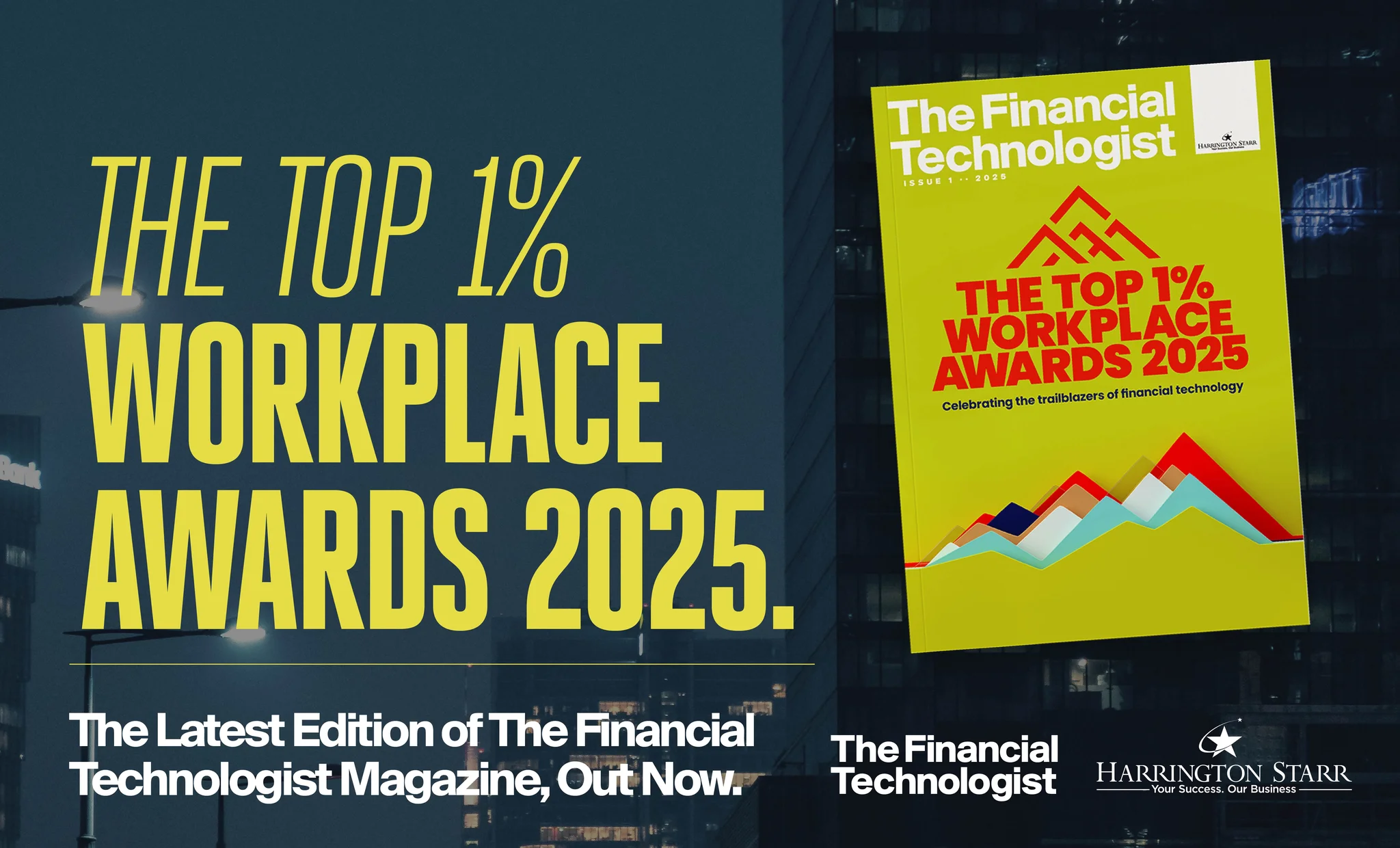In the fast-paced world of financial technology, where downtime costs millions and security risks lurk around every corner, the efficiency and capability of your network engineering team can define your firm’s operational success. While FinTech leaders obsess over product scalability, customer experience, and regulatory agility, many overlook a single, critical indicator that silently determines whether your infrastructure is fit for the future or falling behind.
This blog explores the one metric every FinTech CTO should be tracking in their network engineering team, why it matters, and how hiring the right talent is the first step toward measurable improvement. Along the way, we’ll delve into performance gaps, hiring strategies, and what today’s best-in-class firms are doing to stay ahead.
Spoiler: It’s not headcount or certification levels. It’s Mean Time to Recovery (MTTR).
Why MTTR Should Be a Key Metric in FinTech Network Engineering Teams
Mean Time to Recovery (MTTR) measures the average time it takes your team to identify, respond to, and resolve network issues. In FinTech, where real-time trading platforms, customer portals, and payment systems can’t afford even seconds of downtime, MTTR is more than a performance indicator. It’s a competitive advantage.
Tracking MTTR in your network engineering team helps FinTech businesses:
- Minimise costly service disruptions
- Increase customer trust through reliability
- Identify skill and resource gaps early
- Improve SLAs and regulatory compliance
According to Uptime Institute, 60% of outages in financial services cost over $100,000. In this context, MTTR isn't just technical, it's commercial. Measuring it allows CTOs to tie engineering outcomes to business value, aligning IT with board-level priorities.
The Cost of High MTTR for FinTech Infrastructure Resilience
A high MTTR indicates that your team is either under-resourced, under-skilled, or overwhelmed by technical debt. This is not just a performance issue; it’s a business risk. FinTech firms with high MTTR are more vulnerable to:
- Cascading system failures
- SLA violations with enterprise clients
- Legal and compliance challenges in regulated markets
- Decreased investor confidence due to instability
Imagine a trading platform going offline during market hours. The reputational damage and financial losses can be irreversible. In many cases, the difference between recovery in 5 minutes versus 30 minutes is not the tooling, but the talent.
How Network Engineering Recruitment Impacts MTTR
Network engineering recruitment is not about finding the next available engineer; it’s about hiring for capability under pressure. An engineer who thrives in consumer tech may struggle in low-latency, high-security financial environments.
When you hire strategically, you build:
- Faster incident response workflows
- Stronger root cause analysis practices
- More collaborative engineering cultures
- Greater automation capability to prevent repeat outages
That’s why working with a specialist FinTech recruitment agency makes a measurable difference. We understand that your new hire must reduce your MTTR, not add to it.
Why FinTech CTOs in London and New York Must Prioritise Network Resilience
London and New York remain two of the most competitive FinTech ecosystems in the world. Hiring market pressures, cyber threats, and increasingly complex infrastructure require leadership that is proactive, not reactive.
CTOs who actively track and improve MTTR are:
- Better prepared for investor due diligence
- More likely to attract and retain technical talent
- Seen as strategic leaders by their boards and stakeholders
In these hubs, high-quality network engineers are not looking for jobs, they’re evaluating offers. Your recruitment strategy must reflect the urgency and precision of your infrastructure goals.
What an Optimal Network Engineering Team Looks Like in FinTech
Today’s network teams are not just cable runners or on-call troubleshooters. They are strategic enablers of uptime, security, and innovation.
An effective FinTech network team typically includes:
- Network Engineers: With cloud fluency (AWS, Azure), automation scripting, and secure network design
- Network Architects: Designing scalable, modular topologies to support product growth
- Network Analysts: Monitoring and analysing performance, detecting anomalies early
- DevNet professionals: Blending software and networking for infrastructure-as-code environments
They don’t just reduce MTTR, they prevent incidents entirely through smart architecture and automation.
The Evolution of the Network Engineer in FinTech
The modern FinTech network engineer is no longer defined solely by Cisco certifications or years of experience. Instead, they’re:
- Fluent in code: Python, Bash, YAML
- Familiar with CI/CD pipelines and DevOps culture
- Deeply aware of compliance requirements like PCI-DSS and ISO27001
- Comfortable working across functions (Security, Cloud, Data)
This evolution means your job specs must adapt. If you're still hiring from five-year-old templates, you're likely missing the talent that can lower your MTTR today.
Hiring Mistakes That Increase MTTR in FinTech
Many firms unknowingly sabotage their recovery time by:
- Prioritising speed over skill in recruitment
- Ignoring soft skills like incident communication and team coordination
- Relying too heavily on certifications rather than proven experience
- Failing to test candidates in real-world problem-solving scenarios
The result? Slow resolution, blame-shifting, and repeat incidents. In contrast, a rigorous recruitment partner will help you avoid these pitfalls with better candidate screening and technical validation.
Internal Hiring vs. Specialist Recruitment: What Lowers MTTR Faster?
Internal hiring has its place, but when urgency, specialisation, and market awareness matter, a specialist network engineering recruiter is more efficient. Here's why:
- Access to passive candidates not on job boards
- Deep understanding of FinTech infrastructure needs
- Faster turnaround for urgent hires (e.g., after a critical incident)
- Insight into salary benchmarks and market expectations in NY & London
By aligning with a recruiter who understands MTTR’s strategic role, your hiring becomes proactive, not just reactive.
Hiring for MTTR Improvement: What FinTech Firms Should Ask
Shift your interview conversations away from buzzwords and CV highlights. Instead, ask:
- “Tell us about a time you reduced recovery time after a critical failure.”
- “How do you document network changes and track rollback strategies?”
- “What monitoring tools do you use and how do they support incident response?”
- “How would you improve our MTTR in a 90-day onboarding window?”
These questions reveal operational insight, real-world experience, and proactive thinking, traits that truly impact MTTR.
How Network Engineering Recruitment Partners Drive Measurable Outcomes
At our FinTech recruitment firm, we focus not just on CVs, but on outcomes. We ask our clients what performance metrics matter most to them, and we help them hire for those outcomes.
This includes:
- Custom talent pipelines aligned to MTTR and SLA goals
- Role profiling based on your tech stack, uptime requirements, and incident load
- Full support for contract, permanent, and project-based hires
With the right hire, it’s possible to see meaningful improvements in MTTR within the first 90 days, especially when experience aligns with infrastructure complexity.
How Harrington Starr Helps FinTech Firms Hire Top Network Engineers
In the high-stakes world of FinTech infrastructure, hiring isn’t just about filling roles; it’s about building capability. That’s where Harrington Starr comes in.
We’re a specialist FinTech recruitment firm with offices in London, New York and Belfast, trusted by industry leaders to find network engineers who deliver measurable impact.
Whether you’re trying to:
- Reduce Mean Time to Recovery (MTTR)
- Build a cloud-first or hybrid network team
- Hire for permanent or contract network engineering roles
- Or simply want to avoid the cost of a bad hire
We’ve got you covered.
Our approach is rooted in results. We go beyond job specs, benchmarking skills against what actually drives uptime, automation and resilience in your infrastructure. From startup scale-ups to global trading platforms, we’ve helped firms hire network engineers who cut recovery time in half, reduce incident rates, and future-proof critical systems.
Ready to see the same results? Contact our team to discuss how we can help your network engineering team perform at its best.
From Metric to Mission, Rethink Your FinTech Network Hiring Strategy
MTTR is more than a number; it’s a signal. A signal of whether your infrastructure is reliable, your team is prepared, and your business is future-proof.
As a CTO in FinTech, your mission is to ensure performance at scale. That starts with measuring what matters and hiring people who move those numbers in the right direction.
Let’s talk about how we can help you reduce MTTR, increase resilience, and build a network team that turns disruption into uptime.
Why MTTR Should Be Part of Your FinTech Hiring Dashboard
Too often, hiring success is measured in speed-to-fill or cost-per-hire. While those metrics matter, they don’t tell you if your new network engineering hire is actually improving your infrastructure performance.
By including MTTR as a hiring KPI, you reframe recruitment around value:
- Are our hires helping us respond to issues faster?
- Is our network team scaling with system complexity?
- Are we reducing unplanned downtime over time?
CTOs and Heads of Talent who build hiring dashboards that track outcomes, not just inputs, create a virtuous cycle: better talent decisions, better infrastructure outcomes, and stronger business resilience.
This kind of thinking doesn’t just attract better engineers, it creates a culture of performance and accountability.
Real-World MTTR Improvements Through Better Network Engineering Hires
We’ve worked with FinTech firms that cut their MTTR in half, just by hiring better-aligned engineers.
After hiring network engineers with specialist automation and cloud experience, some FinTech firms have reported faster recovery times within their first quarter, often dropping from several hours to under two.
Many FinTech firms we speak to are exploring self-healing automation to reduce the burden on their network teams. In well-implemented environments, this kind of tooling can cut incident response load significantly, sometimes by as much as 40%.
These aren’t just technical wins, they’re commercial ones. Faster recovery protects revenue, customer trust and regulatory compliance. And it all starts with who you hire.
Future Trends in Network Engineering Recruitment for FinTech
The future of FinTech infrastructure is being shaped by three accelerating trends—each with major implications for hiring:
- AI-Driven Network Monitoring
Machine learning models are already helping to predict failures and reroute traffic pre-emptively. Engineers of the future will need fluency not just in config files, but in training data and AI diagnostics.
- Zero Trust Architectures
As cyber threats evolve, so do compliance expectations. FinTech firms are moving rapidly toward zero trust frameworks. Your next network hire should understand micro-segmentation, identity-based access, and policy enforcement at scale.
- Multi-Cloud and Edge Networking
FinTechs aren’t choosing between AWS and Azure, they’re using both, plus edge deployments for ultra-low latency. Engineers must design with interoperability, speed, and security in mind.
To stay ahead, your hiring must reflect these shifts. It’s not enough to fill today’s gaps; you need to anticipate tomorrow’s complexity.
By working with a FinTech-focused network engineering recruitment partner, you can tap into candidate pools that are already building the future and bring that future into your team today.







